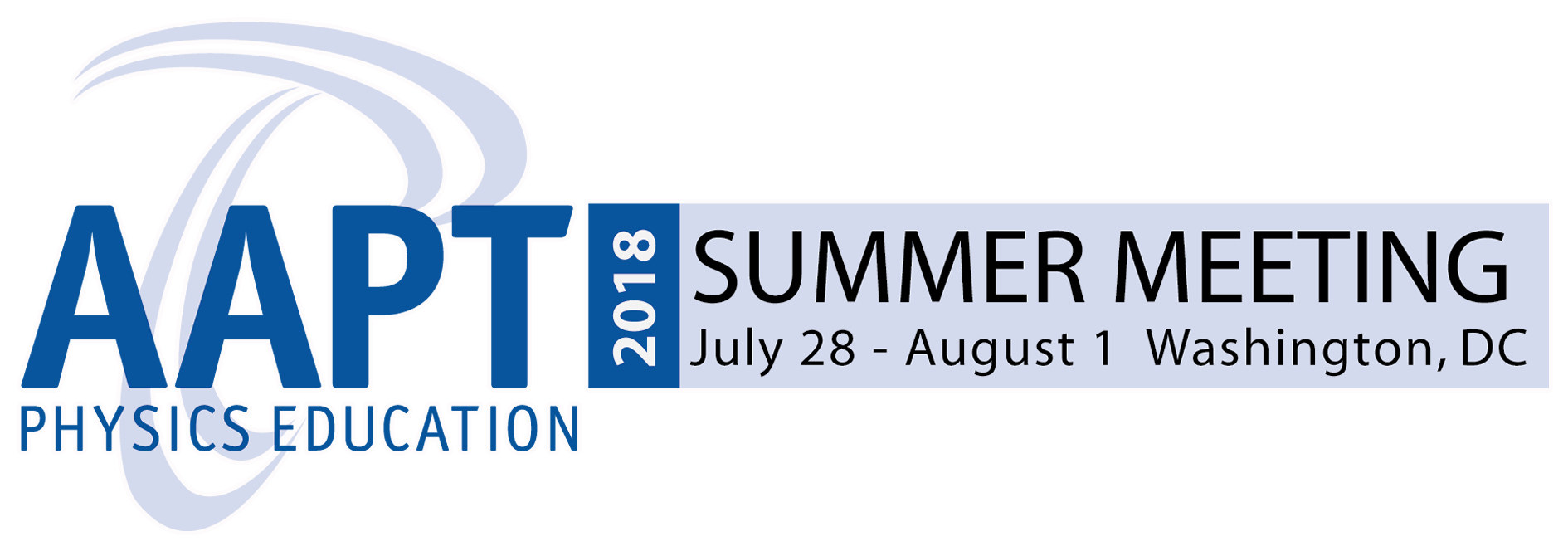
Did you know?
Greater Washington has one of the best educated workforces in the U.S. 55% of Washington, DC residents hold a Bachelor's Degree or higher. — www.washington.org
2018 Summer Meeting Workshops
Listed below is a current list of workshops planned for the 2018 Summer Meeting. It is recommended that you register early for your workshop(s). Some workshops will fill-up early and others may be cancelled due to low enrollment. Some details are subject to change.
Location
Workshops will be held at The George Washington University. Please click here to view a map of campus with parking options.
Registration
You must pick-up your registration packet at the AAPT registration desk at the Renaissance Hotel Washington DC before heading to the University.
Transportation (Washington DC Metro)
- Board the Red Line train at Gallery Place/Chinatown Station (616 H Street, NW)
- Take the Red Line towards Shady Grove to Metro Center (one stop)
- Depart the train at Metro Center and board the Blue Line train towards Franconia-Springfield
- Depart the train at Foggy Bottom GWU (four stops)
This trip will take approximately 15 minutes each way.
Click here for information on how to use the Washington DC Metro
CEU Hours
Earn CEU hours for attending one of the AAPT workshops. Earn 0.40 hours for a 1/2 day workshop or 0.80 for a full day workshop.
Find out more and become a part of SM2018 on: Facebook | Twitter
Some photos courtesy of washington.org

